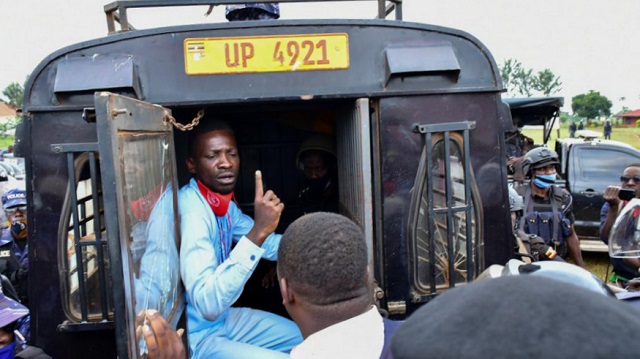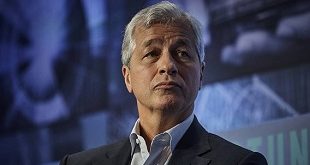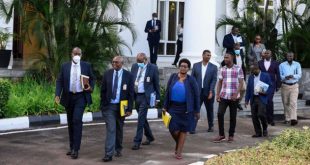
Politicians fuel violence
The September research paper by Gateway Research Centre, asserts that the election period in Uganda is exciting but at the same time tensional. Sometimes elections are marred by chaos and irregularities even in the post-election periods as a result of candidates being dissatisfied with the election results, voter bribery, vote rigging and other forms of election fraud.
Job Kiija, the lead researcher said the study interviewed members of the ruling and opposition political parties, security officers, Civil Society Organisations (CSO) members, journalists and officers of the Electoral Commission.
Kiija said about 89% of those interviewed said they feared the elections could become violent for various reasons. Some of these reasons included lack of trust in the electoral system, and politicians fueling violence using unemployed youths.
Violence experienced in recent weeks is not new to Uganda, as previous election periods have been marred with violence. The long-term impact has been that conflict seems to have permeated the relationships between the electorate, the existing political parties, and the armed forces. Unfortunately, innocent civilians end up being caught in the cross-fire.
Ruling party politician Lydia Wanyoto agreed that politicians on all sides had helped fuel violence, but she said the government was committed to ensuring there was peace during and after the elections.
“There is not going to be violence unless we choose to,” she said, “But if we are going to have rowdy people in the streets, government has institutions, Uganda is still running; they will be checked.”
To stave off the warning signs of electoral violence, on December 3, the Netherlands Institute for Multiparty Democacry which is the brain behind Interparty Organisations Dialogue (IPOD), launched a campaign dubbed “I Choose Peace”.
The campaign targets all individuals, groups and organisations involved in the 2021 General election, urging them to conduct themselves peacefully and set a precedent that shuns future electoral violence.
The I Choose Peace campaign comes at a time when politically motivated violence can plunge the country into chaos; therefore the campaign wants to channel the public energy around elections into peaceful and democratic processes.
In an interview with The Independent, Kiija said the predictions of his study have happened just weeks into the election campaign implying that it could get worse after the election.
According to Kiija, the tale tell signs are the heavy deployment of the military which seems have taken over the roles of the regular police force of maintaining law and order, the high number of the victims of the Nov. 17 and 18 violence following the arrest of Bobi Wine, the statements from President Museveni that it will increasingly be difficult for protesters to go on streets targeting people wearing NRM yellow t-shirts, and the unwillingness of some actors in the opposition to back off. Kiija says if one side does not tone down, the aftermath of the 2021 elections is likely to end up in violence.
“In previous elections the deployment of overt military was on the Election Day but that’s no longer the case. So the character of violence has changed from simple assault to live ammunition which is why we are seeing more deaths,” he said.
He said usually during the previous elections, police has always been the face of violence but now we are seeing excessive deployment of the military which has now taken over the face of violence.
“In our study findings we expected that the full scale violence would happen after the election but it’s surprising that before even the election date, over 100 people have died due to electoral violence. This means the future post election is likely to be worse,” he added.
From what we see, the violence in the aftermath of the elections is likely to be worse because we increasingly are seeing heavy deployment of the military during campaigns, some soldiers are being recalled from foreign missions and some transferred from Kampala to upcountry and vice versa.
“On the election day, we anticipate that there is going to be a lot more violence largely orchestrated by security forces,” Kiija said.
He said his conclusions are based on examining statements that are coming from leaders like President Museveni, his ministers like Elly Tumwine and Kahinda Otafiire that seem to glorify violence.
“The future looks bleak,” he said. “From their statements we see that people who have the state instruments of violence are determined to use this violence to their advantage.
“On the other hand, when we look at the opposition especially Bobi Wine and others they are not willing to back off. So clearly when the D-day comes what you expect is a clash. Therefore whoever is working to diffuse these tensions and violence should up their game such that we can have a close to peaceful election.”
The Minister for East African Community Affairs, Maj. Gen. Kahinda Otafiire recently said he did not go to Luweero bush war to fight to take power and hand it over Kyagulanyi. He said this as a curtain raiser before President Museveni could speak to his party members as he campaigned in Bushenyi district.
“We will not hand over power to anyone threatening violence. I like Kyagulanyi’s songs, but Kyagulanyi can’t lead me. I did not fight in Luweero for Kyagulanyi to lead me. We went to Luweero and fought; then now you tell me to be ruled by Kyagulanyi! No! Can he take us anywhere?” the NRM’s Ruhinda County MP flag said.
Kiija insists that the Electoral Commission is the agency that will be indicted the most because it failed to heed to advice to postpone the elections until COVID-19 which is being used as a reason to clamp down on opposition politicians for flouting the health guidelines.
“How many people is the Electoral Commission willing to have killed by violence and Covid-19 pandemic? Is the election more important that the lives of Ugandans? I think the answer is no,” Kiija told The Independent.
****
 The Independent Uganda: You get the Truth we Pay the Price
The Independent Uganda: You get the Truth we Pay the Price



Interestingly, Kiija is apparently oblivious of the drumming and preparations being done by the opposition to incite violence now and after elections. Kyagulanyi, Tumukunde have openly called for violence. Besigye and Amuriat are talking of having an army (P10) ready to be activated to take over government. The social media outlets manned by Kyagulanyi supporters and some funded by NUP and NUP sympathisers have continued to call for extermination of ‘banyarwanda’. In some parts of Buganda, there are evident intimidation campaigns going on against people that do not support Bobi Wine. The utterances of government and security agencies has consistently been that: whoever tries to disrupt peace and security of the country will be dealt with accordingly. The deployment of security personnel is to prevent occurrence of violence as did happen recently. It is a cardinal role of government to do so as mandated by the Constitution. So to Kiija, the opposition groups are not to blame for the past and anticipated violence, but the government?? Kiija,be rational and serious. Tell me which drink you take.